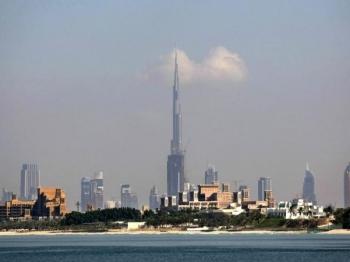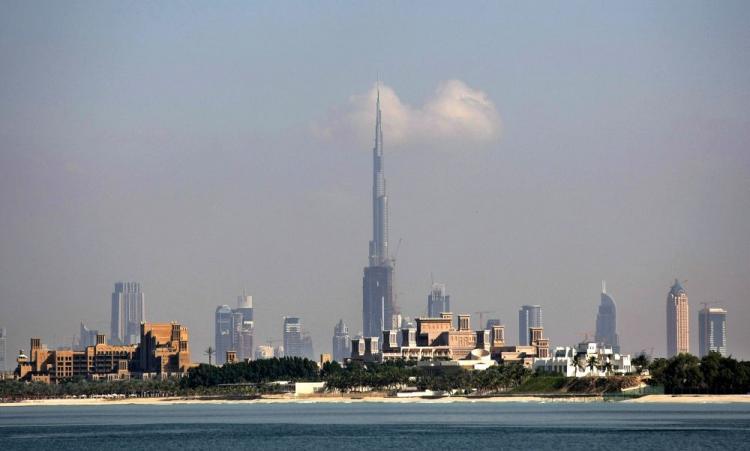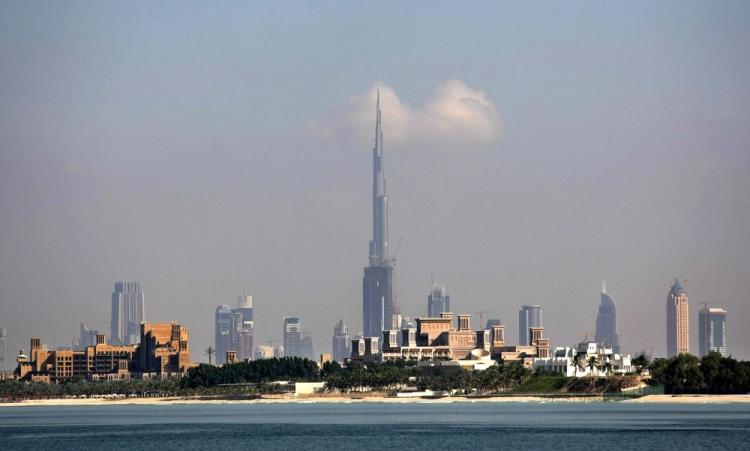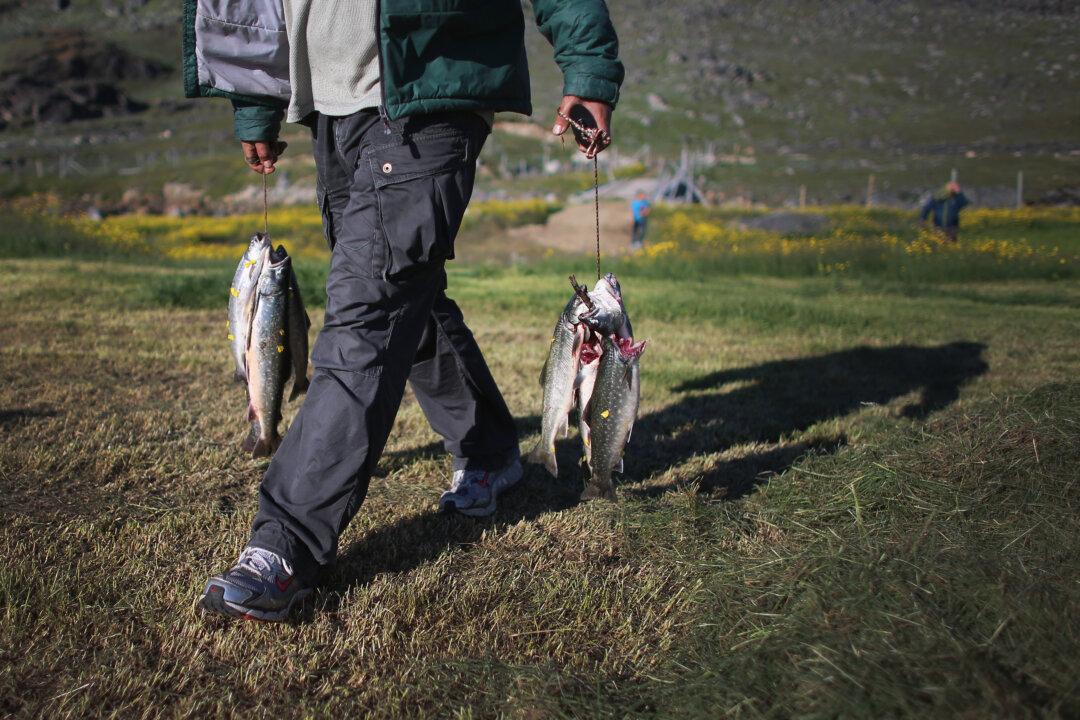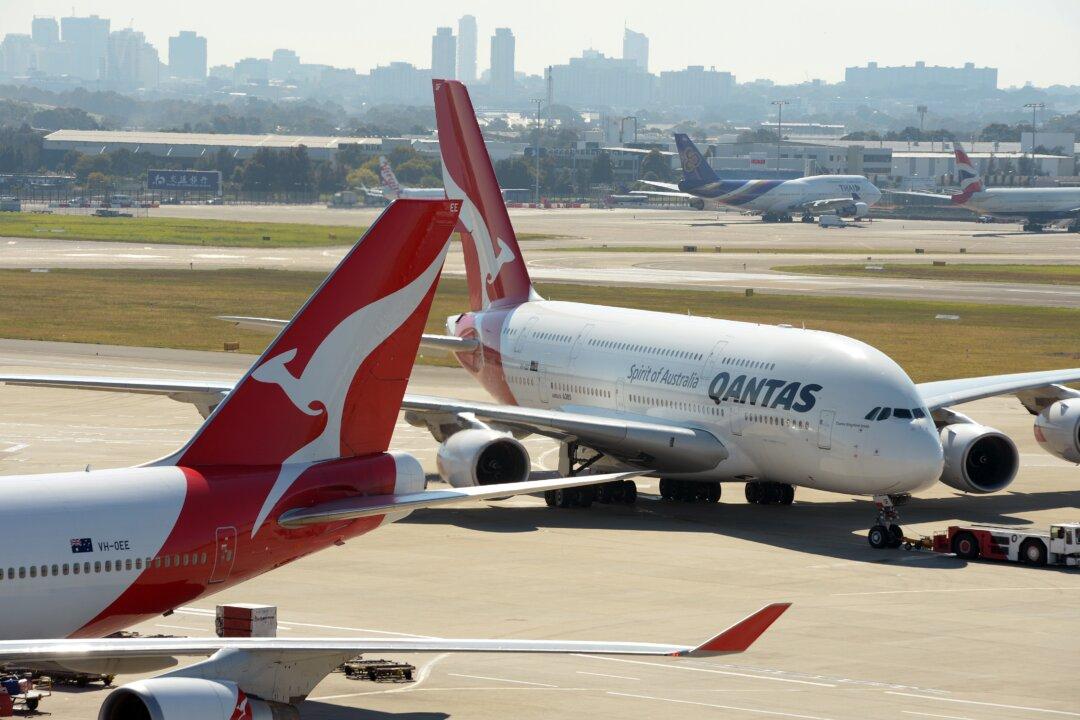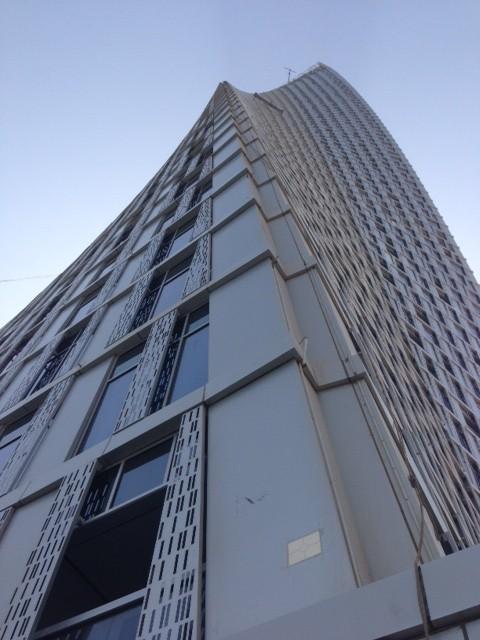DUBAI, United Arab Emirates—It should have been a time of celebration, the day of a nation’s birth.
But two days before the Trucial States finally united to become the UAE, troops from what is now Iran invaded and occupied three strategic islands belonging to the newly formed country.
It has been over 39 years since that day but it is clear that the memory—at least in Abu Dhabi—remains a vivid one.
The issue of Iran’s nuclear program has once again thrust the issue of the territorial claims of the three islands of Abu Musa, and Greater and Lesser Tunb into the forefront of UAE foreign policy.
A series of secret cables released by WikiLeaks two weeks ago revealed that the country’s Defense minister regards Tehran as an “existential threat” and urged the United States to take military action to prevent the country from gaining a nuclear weapon.
“There has been bad blood between the UAE and Iran all the way back to the late 19th century, when various Persian rulers laid claim to the strategically positioned islands,” said Christopher Davidson, a Middle East scholar and author of “Dubai: The Vulnerability of Success.”
“However, even though the islands were occupied by Iran in 1971 and the UAE kept calling for their return, official relations were generally quite good until this year.
“Recently the leadership in Abu Dhabi has been openly hawkish toward Iran, given their fear of an Iranian nuclear weapon.”
UAE Foreign Minister Sheikh Abdullah Bin Zayed Al Nahyan said that his government “demands the return of these islands” at a U.N. conference in September. The call was reiterated by the Gulf Cooperation Council (GCC) when it met in the UAE capital earlier this month.
The crisis has been exacerbated by Iran’s refusal to negotiate on the issue. In a statement earlier this month, Iranian Foreign Ministry spokesman Ramin Mehmanparast said that the “repetition of these vain claims will not help regional peace and stability.”
The disagreement is the most public face of a wider concern among Sunni Arab monarchies in the Gulf over the potential for Iran to dominate the Gulf region militarily. The matter was cast in vivid relief recently following the WikiLeaks disclosures.
King Abdullah of Saudi Arabia called for the United States to “cut off the head of the snake” in reference to Iran, the cables suggested, and King Hamad bin Issa Al Khalifa of Bahrain said that the country’s nuclear program must be stopped.
“The danger of letting it go on is greater than the danger of stopping it,” he was quoted as saying.
It is perhaps as a result of that concern that the UAE has radically bolstered its armed forces. For the past 10 years, the country has engaged in a modernization program costing US$15 billion.
The U.S. cables suggest that the Crown Prince of Abu Dhabi, Sheikh Mohammed bin Zayed Al Nahyan, “sees the logic of war dominating the region.”
“This thinking explains his near obsessive efforts to build up the UAE’s armed forces,” one diplomatic cable says.
If Iran and the United States were to come into conflict, the three islands would be among the first to be hit, said Theodore Karasik, the director of research and development at the Institute for Near East and Gulf Military Analysis in Dubai.
“We would probably see the U.S. forces take out the Iranian forces that are on the islands,” he said. “At that time we would see the UAE probably trying to take the islands back.”
The UAE has had a long relationship with Iran, particularly in Dubai where a large number of long-term resident Iranian merchants became naturalized UAE citizens around the time of the birth of the nation.
Dubai has enjoyed long economic ties with Iran and built several of its larger ports to meet business arising from re-exports from the port city of Bandar-Abbas.
That relationship was not even threatened by sanctions on Iran from the U.S. government, and trade ties have actually improved until recently.
However, with the economic downturn in Dubai, the once-freewheeling emirate has become increasingly reliant on the neighboring oil-rich emirate of Abu Dhabi. As such, it has also had to make sacrifices in its relationship with Iran.
“With Dubai’s economic decline, Abu Dhabi has assumed more control over a central UAE foreign policy, and as such Dubai’s former closeness to Iran has been eroded,” said Davidson.
But two days before the Trucial States finally united to become the UAE, troops from what is now Iran invaded and occupied three strategic islands belonging to the newly formed country.
It has been over 39 years since that day but it is clear that the memory—at least in Abu Dhabi—remains a vivid one.
The issue of Iran’s nuclear program has once again thrust the issue of the territorial claims of the three islands of Abu Musa, and Greater and Lesser Tunb into the forefront of UAE foreign policy.
A series of secret cables released by WikiLeaks two weeks ago revealed that the country’s Defense minister regards Tehran as an “existential threat” and urged the United States to take military action to prevent the country from gaining a nuclear weapon.
“There has been bad blood between the UAE and Iran all the way back to the late 19th century, when various Persian rulers laid claim to the strategically positioned islands,” said Christopher Davidson, a Middle East scholar and author of “Dubai: The Vulnerability of Success.”
“However, even though the islands were occupied by Iran in 1971 and the UAE kept calling for their return, official relations were generally quite good until this year.
“Recently the leadership in Abu Dhabi has been openly hawkish toward Iran, given their fear of an Iranian nuclear weapon.”
UAE Foreign Minister Sheikh Abdullah Bin Zayed Al Nahyan said that his government “demands the return of these islands” at a U.N. conference in September. The call was reiterated by the Gulf Cooperation Council (GCC) when it met in the UAE capital earlier this month.
The crisis has been exacerbated by Iran’s refusal to negotiate on the issue. In a statement earlier this month, Iranian Foreign Ministry spokesman Ramin Mehmanparast said that the “repetition of these vain claims will not help regional peace and stability.”
The disagreement is the most public face of a wider concern among Sunni Arab monarchies in the Gulf over the potential for Iran to dominate the Gulf region militarily. The matter was cast in vivid relief recently following the WikiLeaks disclosures.
King Abdullah of Saudi Arabia called for the United States to “cut off the head of the snake” in reference to Iran, the cables suggested, and King Hamad bin Issa Al Khalifa of Bahrain said that the country’s nuclear program must be stopped.
“The danger of letting it go on is greater than the danger of stopping it,” he was quoted as saying.
It is perhaps as a result of that concern that the UAE has radically bolstered its armed forces. For the past 10 years, the country has engaged in a modernization program costing US$15 billion.
The U.S. cables suggest that the Crown Prince of Abu Dhabi, Sheikh Mohammed bin Zayed Al Nahyan, “sees the logic of war dominating the region.”
“This thinking explains his near obsessive efforts to build up the UAE’s armed forces,” one diplomatic cable says.
If Iran and the United States were to come into conflict, the three islands would be among the first to be hit, said Theodore Karasik, the director of research and development at the Institute for Near East and Gulf Military Analysis in Dubai.
“We would probably see the U.S. forces take out the Iranian forces that are on the islands,” he said. “At that time we would see the UAE probably trying to take the islands back.”
The UAE has had a long relationship with Iran, particularly in Dubai where a large number of long-term resident Iranian merchants became naturalized UAE citizens around the time of the birth of the nation.
Dubai has enjoyed long economic ties with Iran and built several of its larger ports to meet business arising from re-exports from the port city of Bandar-Abbas.
That relationship was not even threatened by sanctions on Iran from the U.S. government, and trade ties have actually improved until recently.
However, with the economic downturn in Dubai, the once-freewheeling emirate has become increasingly reliant on the neighboring oil-rich emirate of Abu Dhabi. As such, it has also had to make sacrifices in its relationship with Iran.
“With Dubai’s economic decline, Abu Dhabi has assumed more control over a central UAE foreign policy, and as such Dubai’s former closeness to Iran has been eroded,” said Davidson.
